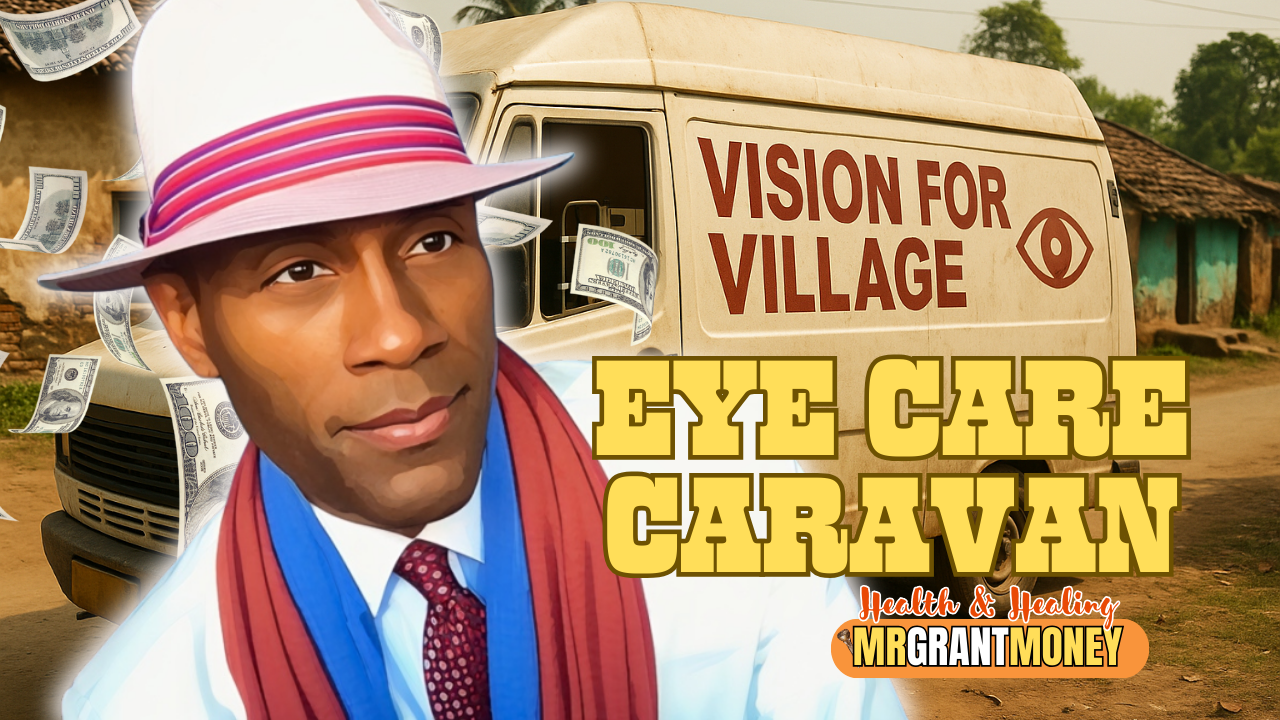Girls Who Code: Mr. Grant Money & the Tech Sisters of Nairobi

 Wed, Oct. 08
Wed, Oct. 08
“We were told computers weren’t for girls—so we built our own lab.”
— Zawadi, 16, Tech Sisters Collective
She said it without anger—just focus.
Like the fire had passed, and now she was building from the ash.
Zawadi, from Mathare Valley in Nairobi, is the youngest founding member of Tech Sisters Collective, a grassroots coding club born in a borrowed church basement that’s grown into one of the most promising digital equity programs in East Africa.
And they’re just getting started.
Code, Courage, and the Power Gap
Nairobi is hailed as Africa’s Silicon Savannah—a hub of startups, innovation, and tech labs.
But in places like Mathare, Mukuru, and Kayole, the real map tells a harder truth:
-
No computer labs in schools
-
Cultural bias against girls in tech
-
Safety issues and home responsibilities pulling girls away from learning
To girls here, coding wasn’t a class—it was science fiction.
That’s what made Tech Sisters not just a club, but a counter-narrative wrapped in Wi-Fi and sisterhood.
The Founders Who Didn’t Wait
It started with:
-
Four girls
-
One donated laptop
-
A free Codecademy trial
Zawadi, Amina, Sifa, and Ruth taught themselves front-end development using YouTube and pure grit.
Their first app?
A platform to help local women find safe transportation after dark.
That caught attention—from teachers, then the Nairobi City Council, and finally Ms. Lydia Mumo, a policy advocate who saw not just talent, but a movement.
Together, they envisioned:
-
Coding, robotics, and entrepreneurship for girls 13–21
-
Laptops, solar charging, and data
-
Mentorship from Nairobi’s tech sector
-
A dedicated Tech Sisters Innovation Lab in Mathare
All they needed was strategic funding.
🎩 Enter the Grant Whisperer
Lydia’s message? Direct.
“We have the talent. We have the use case. We even have the building. What we don’t have is your grant magic.”
I knew the landscape:
Edtech + gender equity + climate-resilient tech = highly fundable.
When I landed in Nairobi and stepped into their concrete “lab”—secondhand laptops, solar lanterns, Wi-Fi, and big dreams in HTML—I knew:
This wasn’t just fundable.
It was foundational.
✍️ Writing Code and Writing the Future
We built a multi-stakeholder strategy that combined local power with global partnership:
🔹 Anchor Funding
-
UN Women Digital Generation Fund: $1.1M for 3 years of ops
🔹 Infrastructure + Solar
-
Global Innovation Fund: $500K for hardware + lab buildout
-
Kenya’s Ministry of ICT: curriculum integration with public schools
🔹 Workforce & Mentorship
-
Mastercard Foundation Young Africa Works: $350K for entrepreneurship track
-
Nairobi’s tech ecosystem (Safaricom, women coder networks) provided devices and mentors
We added student-built apps to the application.
We included a voice note from a mom:
“I thought my daughter would marry at 17. Now she’s teaching me how to email.”
It wasn’t just storytelling.
It was strategy.
Green Light, Glowing Screens
The approvals arrived like code deploys:
-
✅ $1.1M from UN Women
-
✅ $500K from Global Innovation Fund
-
✅ $350K from Mastercard Foundation
-
✅ Curriculum backed by Kenya’s ICT ministry
Within 6 months:
-
The Tech Sisters Innovation Lab opened, solar-powered and girl-led
-
120 girls enrolled in tracks across AI, fintech, and web dev
-
16 grads landed internships with Nairobi startups
-
One was hired—remotely—by a design firm in Toronto
And Zawadi?
She launched Code Red—a mobile app that tracks local tech events and scholarships for girls in East Africa.
Grant Money’s Gospel: Nairobi Edition
Five takeaways from a secondhand laptop revolution:
-
Never underestimate DIY.
Tech Sisters didn’t wait. They launched.
Funders reward self-starting brilliance. -
Gender equity isn’t charity. It’s scale.
Girls in tech aren’t vulnerable. They’re visionary. -
Global money + local love = real power.
Diaspora networks bridged the funding and mentorship gap. -
Story + software = unstoppable.
Our proposal included apps, testimonials, and photos of the lab in action. -
Fund girls because they lead.
Not because they need. That changes everything.
Who’s Waiting for Wi-Fi and a Chance?
Maybe there’s a girl near you sketching a logo in a notebook.
Maybe there’s a church basement ready to become a tech hub.
Maybe the next Zawadi is already teaching her little sister how to debug code.
You bring the fire.
I’ll bring the funding map.
Let’s code the future—together.
🛍 Explore More
-
Discover more grassroots genius on the Mr. Grant Money Blog
-
Find your next toolkit at the Mr. Grant Money Store
-
Turn impact into soundtrack with Mr. Grant Money Music
💬 Discussion Questions
-
What gendered or geographic barriers exist in tech education near you—and how can we close them?
-
Why should leadership, storytelling, and entrepreneurship go hand-in-hand with technical training for girls?
-
What would a community-led innovation lab look like where you live?
-
How does funding vulnerability vs. vision change how we tell our stories?
-
What DIY or informal learning space changed your life—and how could funders uplift more spaces like that?
🔓 UNLOCK EXCLUSIVE TIPS WITH MR. GRANT MONEY!
We hate SPAM. We will never sell your information, for any reason.
















